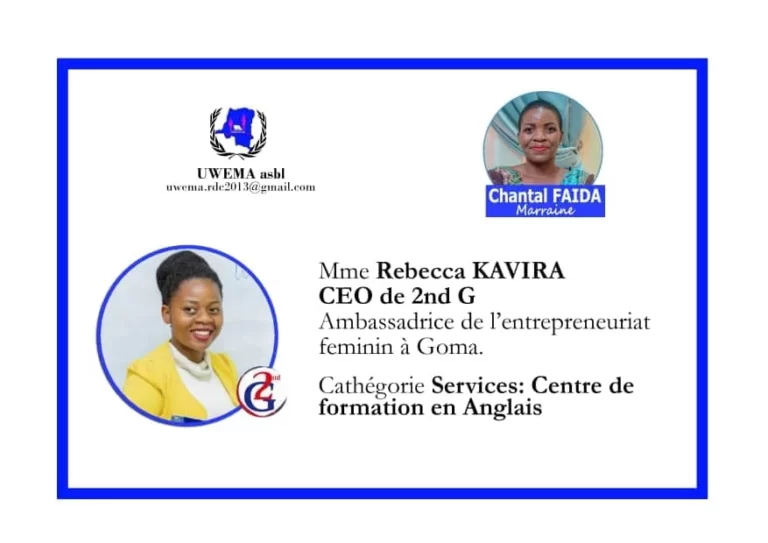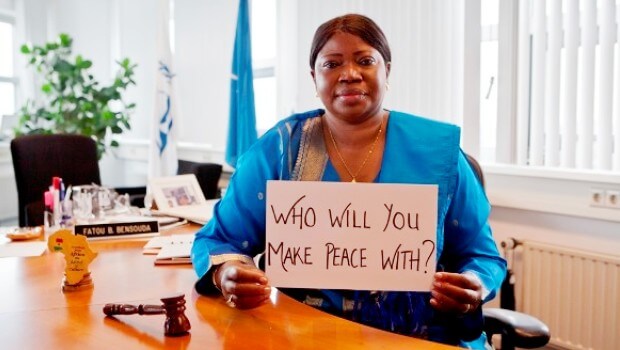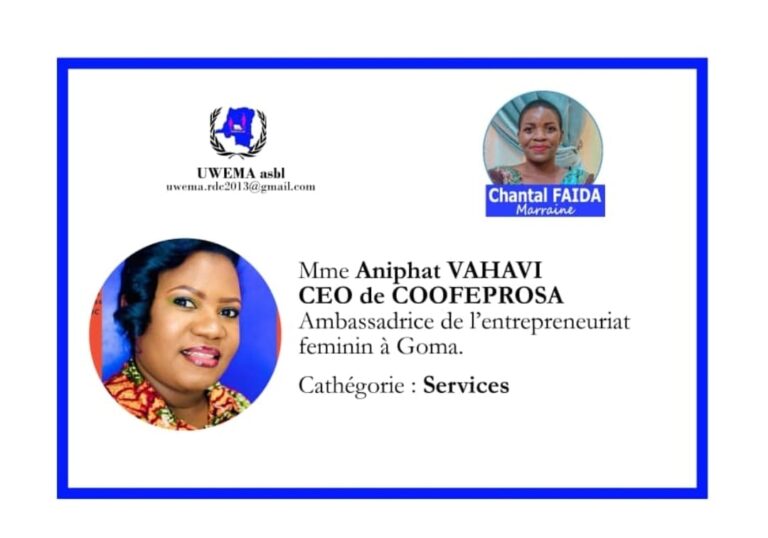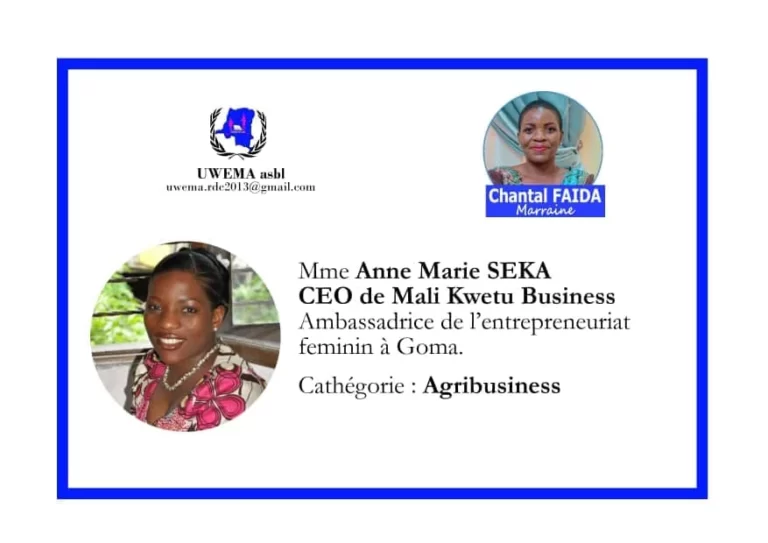Family codes in Africa: collective post of four women bloggers.

Every year, March 8 celebrates International Women’s Day. This historic date makes it possible to take stock of the progress observed throughout the world with regard to the place of women in society, but this date also serves to share the barriers that persist in this regard. What equality between human beings in 2016? What are the battles to be waged? We are four bloggers from the “Mondoblog” platform and we deliver in this post our analysis on the non-existence or non-application of laws regarding respect for women’s rights in African societies. Religion, tradition, marriage, work, inheritance, children, education are major topics that reveal a real disharmony between women and men and which still raise many questions.
Providing fair answers to these questions is essential, it does not constitute a favor for women, on the contrary, it participates in the construction of the only possible path for a better and fairer world.
Because we exist to fight,
Because our fight promotes values,
Because our values carry humanity, dignity and equal rights,
Because our rights are constantly violated,
Because our rights are violated by ignorance, bad faith, inhumanity, we unite,
Because our union symbolizes the beginning of the end of a long complicit silence,
Because our complicity has caused many infamous, despicable and odious abuses,
Powerful, virtuous and inspiring women were outraged, they inspired us,
Tribute to them on this memorable day, internationally celebrated for the rights of women, indigenous, black, white, yellow, slender, thick, flirtatious, young, old,…
Women: It’s time we harnessed our power to change the world.
We united in our revolt, each of us wrote a short, very personal text, which you will find below for reading. We discuss the situation of women in three countries: Chad, Mali and the Democratic Republic of Congo.
1. CHAD and MALI
Rene Mouna Ndjodjo Klein : writer, pan-Africanist and activist committed to the defense of women’s rights between Chad and Mali. Hand on heart, she asks women to fight men’s infidelity rather than attack bastard children. https://rendodjo.mondoblog.org/
We must talk about the family code, this subject is essential. I’m determined to talk about it and I say it straight away: the opinion of the men – gentlemen of the jury – does not matter to me very much and I would not waste my time responding to women who oppose the code either. in the name of religion.
Here is what I have to say: I have noticed since my arrival in Bamako that the peoples of the Sahel all have the same and unique idea of women. The refusal of the family code is general, the social protection of women, mothers, sisters and daughters does not exist. I wanted to understand why and I realized that the arguments in Mali were the same as in Chad: certain provisions of the codes are in contradiction with Islam, in particular the articles concerning the age of marriage for girls, the divorce, the ban on bodily harm to a wife or even the right of inheritance for children born out of wedlock in the same way as legitimate children.
I will not address the question of the need for each country to have a Family Code, on the other hand, trying to understand why it is slow to appear in certain countries is THE question that interests me. I think African men have a mentality linked to the old days, their argument against the family code is tradition but these are phallocratic traditions that they justify through religion. The African man takes the woman for granted at the price of his dowry, he refuses her the right to be an adult and autonomous, he prevents her from making a decision by herself, he also allows himself to hit her. According to the men, adopting the Family Code as social law would deprive them of these privileges and would be a great crime, they must prevent its advent at all costs. There is only the religious argument which holds in their refusal to reform the laws. Yet this argument is not irrefutable, see the case of Morocco :
Morocco, Muslim royalty with Arab-Berber traditions sprinkled in the East has its Family Code. The Moroccan code is one of the most equitable and protective: the woman no longer needs a guardian to marry, the legal age of marriage for young girls has increased from 15 to 18 years old, to have a second wife you must obtain authorization from the first wife, any desire for repudiation is subject to the authorization of a judge, the wife has the right to request a divorce, and, in the event of a divorce, whoever has custody of the children retains the marital home. Moroccans recognize themselves in this text that they have adopted, and yet they pray every day by turning towards the East! Chadian society and Malian society, but also Arabic-speaking and Muslim associations interested in these issues, shouldn’t all of them look to Morocco?
2. MALI
Fatouma Harber, political analyst, teacher, social activist, I do not tolerate that the family code legalizes the early marriage of girls and I think that we must put an end to the cultural constraints that prevent the development of women who were once confined to the role of simple breeder. https://faty.mondoblog.org/
It would be like reading the Koran by reading the family code
The family code has long been demanded by Malian women. Until 2011, the year of the adoption of the family code, there was hope in Mali, all human rights activists thought they could change society and liberate Malian women, marginalized by traditions.
Our society indeed confines women to the role of reproductive and scapegoat. She has no say in the string of children that her husband bears her and all her rights are entrusted to her “happy” husband, on whom she is totally dependent.
Initially, for women’s rights organizations, the family code seemed to be the only way out that would allow Malian women to legally escape the weight of tradition. But badly took them. When the draft family code was adopted at first reading in the Malian national assembly and then sent back to the presidency for promulgation, the defenders of traditions stepped up to the plate, they were threatening, so threatening that power trembled. Religious associations and the High Islamic Council demonstrated, they filled the March 26 stadium, there was a crowd of angry bearded men. They refused that the Malian government agree to grant women’s rights to the detriment of the Muslim religion. Power wavered. Result: the power in place has retreated to calm things down, at the expense of women’s rights. Today when we read the family code of Mali, we think we are reading the Koran! If the age of marriage corresponds to the majority for the man, it is 16 years for the woman. The man keeps his title of head of the family there, he owns his wife, who is like “commodity” that he thinks he has bought.
3. TCHAD
Brya Elise Grâce Roassim : Professional journalist, strong actor of change and passionate about writing. “It is not normal that today we are the only country not to have the personal and family code, a great mobilization must be thought out to exert pressure, women are the first concerned.” https://tchadmeilleur.mondoblog.org/
In Chad, the personal and family code (CPF) has still not been adopted, it is about to be thrown into oblivion…
Officially it is the Ministry of Social Action and the Family that holds the text of the CPF but when you look for a copy of the draft there is none. Looking carefully, we discover four different texts, four versions of the code! This project has obviously undergone a lot of grooming, adjustments and readjustments… it seems that this text does not make consensus! The latest version, at least supposedly, is nowhere to be found. According to the Directorate for the Advancement of Women and Gender Integration, the document has been in the General Secretariat of the Government since 2010. But everyone carefully avoids addressing this subject, evoking the code project creates a certain embarrassment. A senior management official simply said “it’s no longer our problem, we’ve already handed it over to whomever it may concern”. For this official, talking about the adoption of the code as it is, is difficult. “Currently, there is talk of drafting a civil code which will consist of four books in which the personal and family code will be included. So we wait to see’’.
Everyone agrees on the principle of a civil code, but the real question is: a code drawn up by whom and with whom? Those who took the time to work on it and write it are totally discouraged. Enock Nodjigoto – one of the thinking heads of the code – no longer wants to pipe words on the subject. “I don’t want to talk about this code anymore. The document is now managed by the government, so I can’t tell you anything, ”he says very bitterly.
This code divides, two camps oppose each other and they are apparently not ready to get along. For some, the code has gone beyond the precepts of their religion and to accept it would be to renounce themselves, their identity. For others, this code comes on the contrary to solve a certain number of problems which persist in our society. According to Koi Pierrot Ganda, journalist, if this project encounters difficulties, it’s because of “the bad faith of people who oppose this code. The code has been groomed several times taking into account all the sensitivities, which are represented during the work. The reservations have been issued to satisfy everyone, if the code is difficult to pass, it is not the code that is the problem but certain individuals”.
Koi Pierrot Ganda does not understand why the draft code, which protects women and children, is not defended by the women themselves. According to Kemneloum Delphine, lawyer and human rights “defender”, « we are one of the rare countries not to have a personal and family code and we continue to work with the French code which dates from 1958, this is not normal. It is surprising that the code has still not been adopted. Many compromises are made with respect to customs and religions. It is up to the public authorities to have this code adopted. We create false problems to slow down the adoption of the project, let’s take the example of marriage: if we marry according to Muslim or Christian rules, we comply with these rules. But if we marry according to the national rules, we must also conform to these rules. We talk about banal things to block the project. We have reached the point where it would take a great mobilization to exert pressure. It is up to the women’s associations to make it a program and to set objectives. This is important because some people prefer to keep the woman in a vague status. Many women do not know that this draft code exists and that it is problematic ’’. Women and men of Chad, it is time to act.
4. DRC – Democratic Republic of Congo
I campaign for the reform of the family code in the DRC. The Congolese family code has the unique merit of reconciling modern law with customary law in the organization of the cell that is the family, but it still excludes women from many vital sectors of life. Thanks to the pugnacity of the Honorary Minister of Gender, Family and Children, Mrs. Lukiana Mufwankolo Dialukupa, a reform of the family code is currently underway, so it is urgent that it be recorded and implemented.
The old family code is now obsolete, unsuitable and inconsistent. Certain provisions contained in this code enshrine remarkable inequalities, always to the disadvantage of women. Incredible after all that we had in terms of promises of change never translated into concrete actions. Let’s look at articles 352, 444 and 448 which stipulate for example that the husband is the head of the household and that he owes protection to his wife, while the wife owes obedience to her husband. Women are also obliged to obtain the consent of their husband for any legal act, etc.
Certain widowhood rites are also tragic, certain appalling practices are tolerated such as: imposing the shaving of the head, imposing the stripping of all property, imposing confinement for several days, imposing corporal punishment with itchy herbs, imposing sterilization forced or impose the purifying bath in public. These facts are revealed in the semi-monthly of the feminist organization “the dynamics of women lawyers” .
On this special day of the day of the fight for women’s rights, I challenge everyone, we must act to put an end to retrograde, degrading and discriminatory practices against Congolese women, these are unacceptable barbarities. There is no reason to tolerate gender injustice. Let us stand up and demand the application of laws and regulatory texts adapted to the realities on the ground and to universally recognized values.






